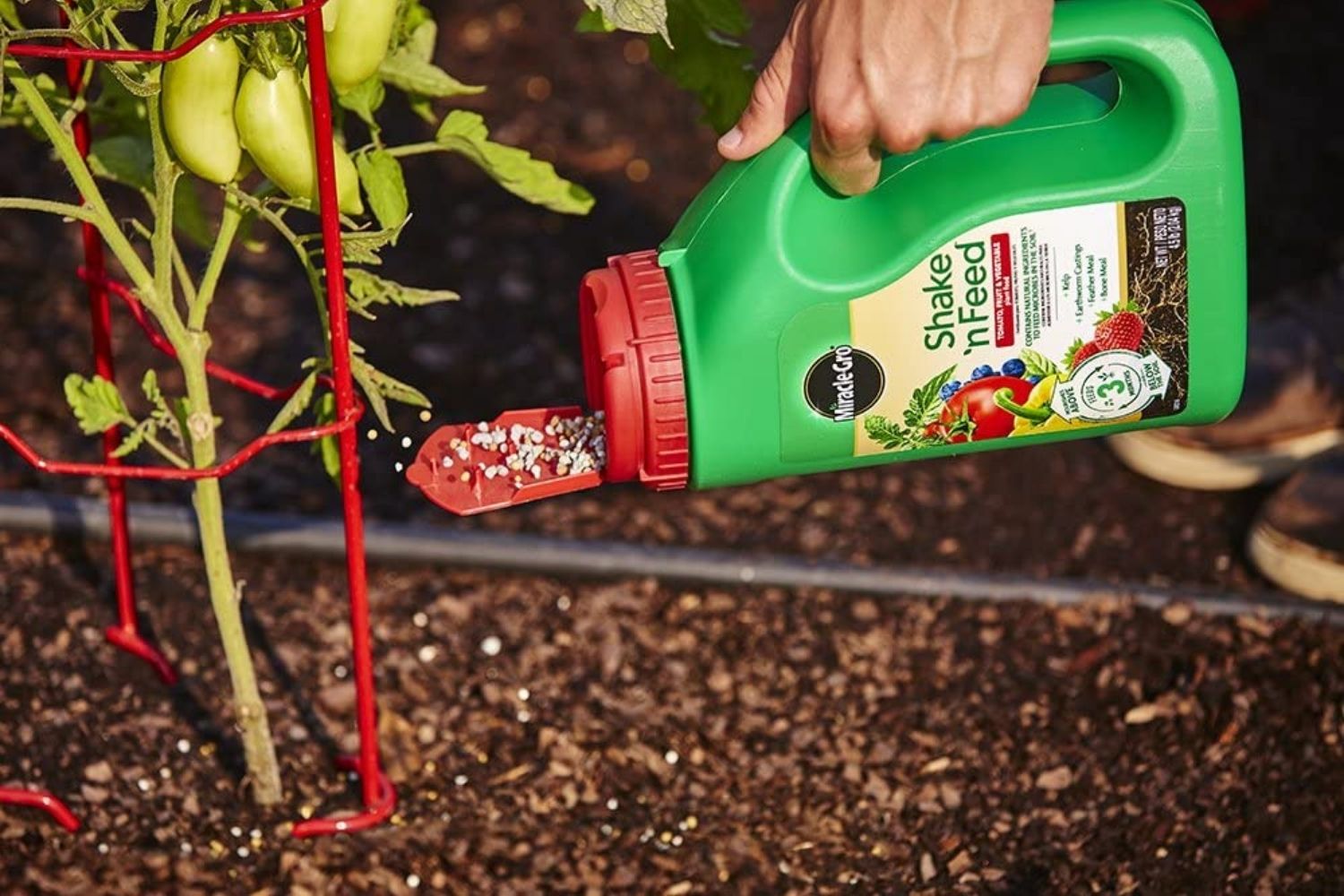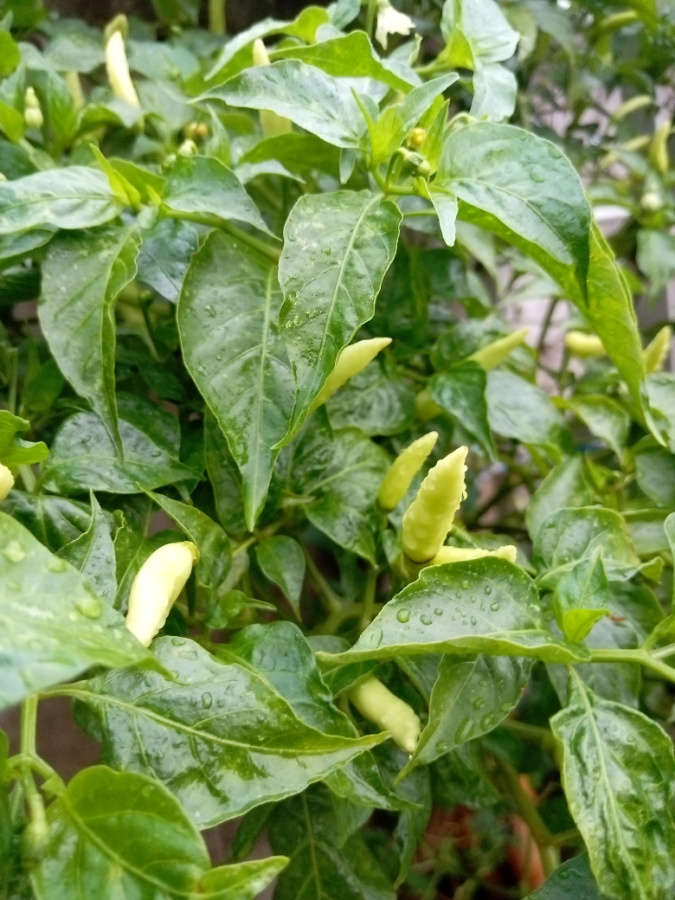Organic Vs. Synthetic Fertilizers: Which Is Best for Supporting Healthy Pepper Plants?
In the realm of nurturing healthy pepper plants, the selection in between organic and synthetic plant foods stands as a crucial choice with significant implications. While both options purpose to supply vital nutrients to support plant development, the nuances of their effect on the dirt, plant health and wellness, and the environment stimulate a debate that mirrors throughout the gardening area. Comprehending the distinct benefits and prospective challenges of each plant food type is critical for pepper cultivators seeking to enhance their yields while preserving an eco-conscious and lasting method.
Benefits of Organic Plant Foods
Organic plant foods supply an environmentally-friendly and lasting method to beneficial pepper plants, offering essential nutrients without making use of synthetic chemicals. These natural plant foods are stemmed from natural resources such as compost, manure, bone dish, and seaweed, promoting dirt health and biodiversity. Unlike artificial fertilizers, organic choices launch nutrients slowly, making sure a well balanced and steady supply for pepper plants to prosper.
One substantial benefit of organic plant foods is their ability to enhance dirt framework and water retention. By enhancing soil wellness, natural fertilizers promote valuable microbial activity, which aids in nutrient uptake by pepper plants. In addition, organic plant foods minimize the risk of chemical run-off, safeguarding water resources from air pollution and safeguarding the atmosphere.
Moreover, natural plant foods add to long-term soil fertility by promoting the development of valuable dirt organisms. These organisms help break down raw material, launching nutrients in a type that is conveniently obtainable to pepper plants. best fertilizers for peppers. By cultivating a healthy and balanced soil ecosystem, organic fertilizers support sustainable pepper cultivation practices that benefit both plants and the environment
Drawbacks of Synthetic Fertilizers
Artificial fertilizers, in comparison to their natural counterparts, pose numerous downsides when used to nurture pepper plants, affecting both plant health and ecological sustainability. One major drawback of artificial fertilizers is their tendency to seep nutrients from the soil promptly.
In addition, the overuse of synthetic plant foods can contribute to water pollution. Excess plant foods not absorbed by plants can remove into water bodies, leading to eutrophication, where algae flowers deplete oxygen degrees in the water, harming water life. Furthermore, artificial fertilizers are commonly originated from non-renewable sources, such as fossil fuels, adding to carbon emissions and ecological degradation throughout their manufacturing.
Nutrient Absorption Contrast
When contrasting natural and artificial fertilizers in terms of nutrient absorption, organic fertilizers have the advantage of offering a much more well balanced and slow-release resource of nutrients. Organic plant foods have a selection of macro and trace elements that are not just beneficial for the plants but also promote healthy soil microbial activity, which aids in nutrient uptake.
Additionally, organic fertilizers enhance soil framework and water retention ability, permitting pepper plants to accessibility nutrients more efficiently. This improved soil quality facilitates root development, enabling far better nutrient absorption. Artificial plant foods, although at first increasing plant growth due to their high nutrient this content focus, might prevent long-lasting nutrient absorption by degrading soil health with time.
Ecological Influence Considerations

On the various other hand, artificial fertilizers, although often even more instantly readily available and concentrated to plants, can have destructive impacts on the setting if not used properly (best fertilizers for peppers). Their manufacturing calls for high energy inputs, bring about greenhouse gas discharges and adding to climate modification. Moreover, the overflow of excess artificial fertilizers can infect water sources, bring about eutrophication and hurting marine communities.
Ideal Fertilizer Practices for Peppers
To achieve this, it is vital to comply with best see this website fertilizer practices customized to the details requirements of pepper plants. One vital practice is to perform a dirt examination prior to applying any fertilizers.
An additional vital method is to fertilize pepper plants at the best time. Generally, peppers take advantage of getting fertilizer at planting and after that once more when they start to flower. Over-fertilizing can lead to nutrient inequalities and hurt the plants, so it is important to follow advised application rates.
In addition, selecting a well balanced fertilizer with an NPK proportion that suits pepper plants' demands is fundamental. Inevitably, combining synthetic and natural plant foods sensibly can aid nurture healthy pepper plants while decreasing environmental effect.
Verdict

Organic plant foods offer an environmentally-friendly and sustainable method to beneficial pepper plants, giving important nutrients without the usage of artificial chemicals. Unlike artificial fertilizers, organic choices launch nutrients gradually, making certain a stable and balanced supply for pepper plants to thrive.
Synthetic fertilizers, in contrast to their organic counterparts, present numerous disadvantages when used to nourish pepper plants, impacting both plant health and wellness and environmental sustainability. When contrasting artificial and organic plant foods in terms of nutrient absorption, natural plant foods have the benefit of supplying an extra well balanced and slow-release resource of nutrients.In addition, natural plant foods boost dirt framework and water retention capability, enabling useful source pepper plants to gain access to nutrients a lot more efficiently.